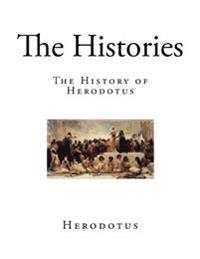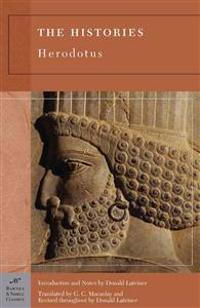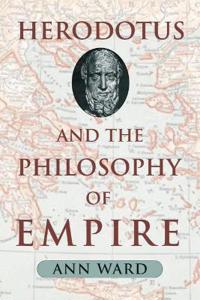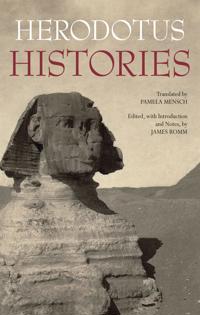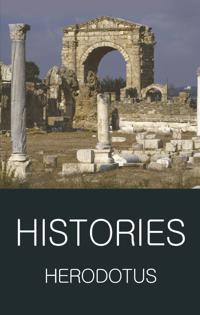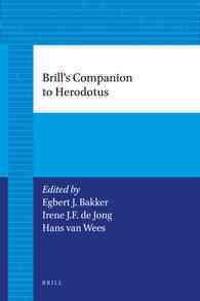The Twitter Herodotus: An Abbreviated History of the Persian Wars for the Modern Age (häftad)
ISBN: 9781491054963 - UTGIVEN: 2014-12The Histories (Häftad)
avHerodotus
ISBN: 9781593081027 - UTGIVEN: 2004-04Chronicling the remarkable victory of Greece n its war (499-479 B.C.) against the invading Persians, Herodotus was the first historian to research the sites he described, traveling the world to gather a wealth of data for his enthralling epic." The Histories also inaugurated the practice of ethnogra[...]
Herodotus and the Philosophy of Empire
ISBN: 9781602580077 - UTGIVEN: 2008-07In Herodotus and the Philosophy of Empire , Ann Ward treats the classical writer not as a historian but as a political philosopher. Ward uses close textual analysis to demonstrate that Herodotus investigates recurring themes in the most important forms of government in the ancient world. This analy[...]
Histories (Pocket)
avHerodotus, Pamela (TRN) Mensch, James (EDT) Romm
ISBN: 9781624661136 - UTGIVEN: 2014-03Landmark Herodotus (Inbunden)
ISBN: 9781847246868 - UTGIVEN: 2008-09Chronicles the rise of the Achaemenid Persian Empire and its war with the Greek city-states. This book also recounts the experiences of Herodotus of Halicarnassus, an adventurous Ionian Greek with the varied peoples and cultures he had encountered during his journey.[...]
Histories (Storpocket)
avHerodotus
ISBN: 9781853264665 - UTGIVEN: 199605Herodotus (c480-c425) is 'The Father of History' and his Histories are the first piece of Western historical writing. They are also the most entertaining. Why did Pheidippides run the 26 miles and 385 yards (or 42.195 kilometres) from Marathon to Athens? And what did he do when he got there? Was the[...]
Herodotus
ISBN: 9781853991851 - UTGIVEN: 1998-08An account of Egyptian history and custom which includes anthropology, natural history and any antiquarian information of interest to Herodotus. This scholarly edition offers a thorough introduction to both Greek historiography and Egyptology.[...]
Histories (Häftad)
avHerodotus
ISBN: 9781853996283 - UTGIVEN: 2002-07Book I of the "Histories" provides a particularly good illustration of the discursiveness and diversity of Herodotus' materials and of the ingenuity with which he develops his narrative and welds it into an artistic whole. Here he deals first with the distant mythological and then in greater detail [...]
The Histories (Inbunden)
avHerodotus
ISBN: 9781857152340 - UTGIVEN: 1997-03Traditionally known as the Father of History, the Greek writer Herodotus(c. 484-420 BC), was the first man to tell a story in prose on the scale of the ILIAD and the ODYSSEY. His subject is the war between the Persians and the Greeks but, in order to explain how this war came about, he also describe[...]
Brill's Companion to Herodotus (häftad)
ISBN: 9789004169661 - UTGIVEN: 2012-08Herodotus' Histories can be read in many ways. Their literary qualities, never in dispute, can be more fully appreciated in the light of recent developments in the study of pragmatics, narratology, and orality. Their intellectual status has been radically reassessed: no longer regarded as naive and [...]


